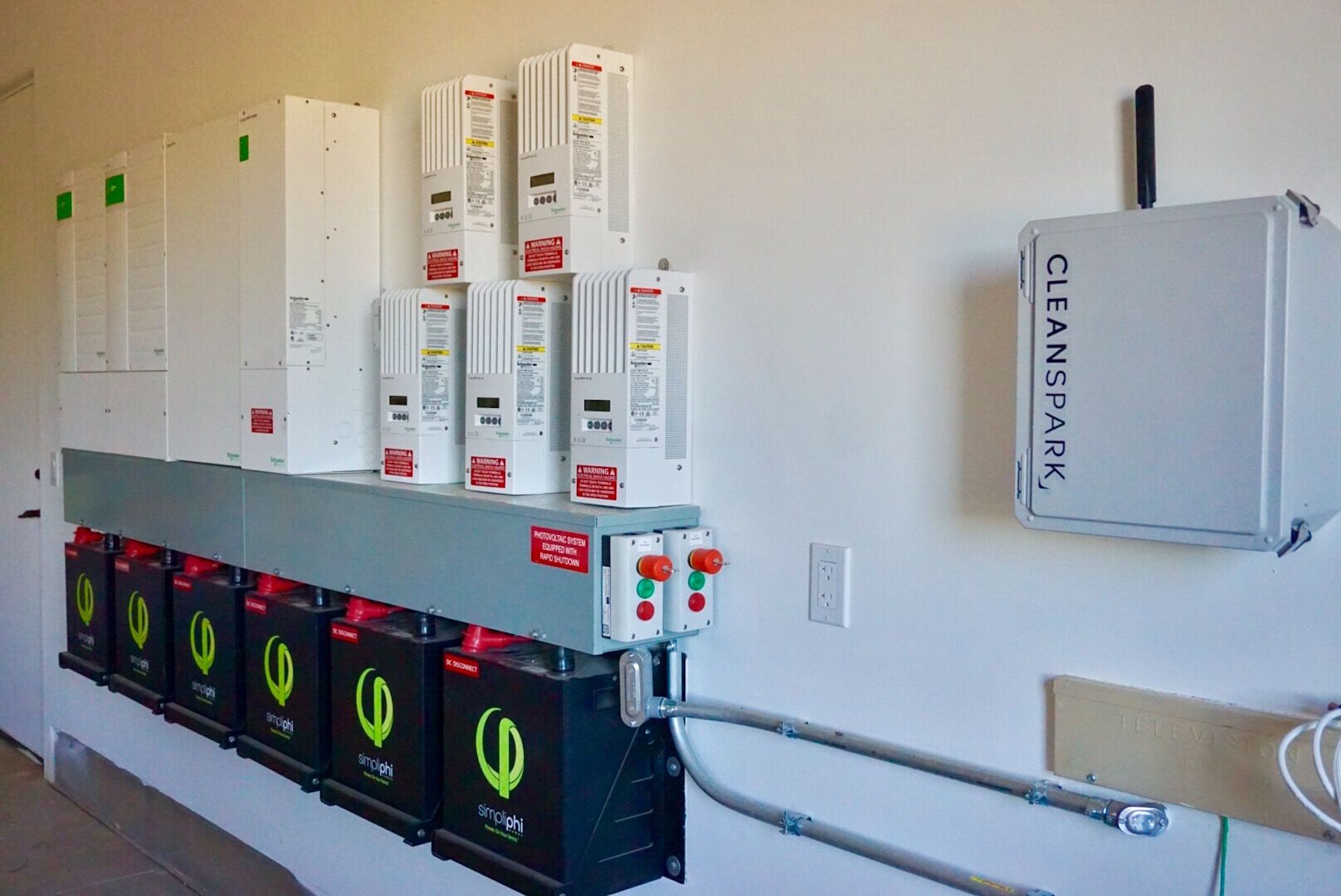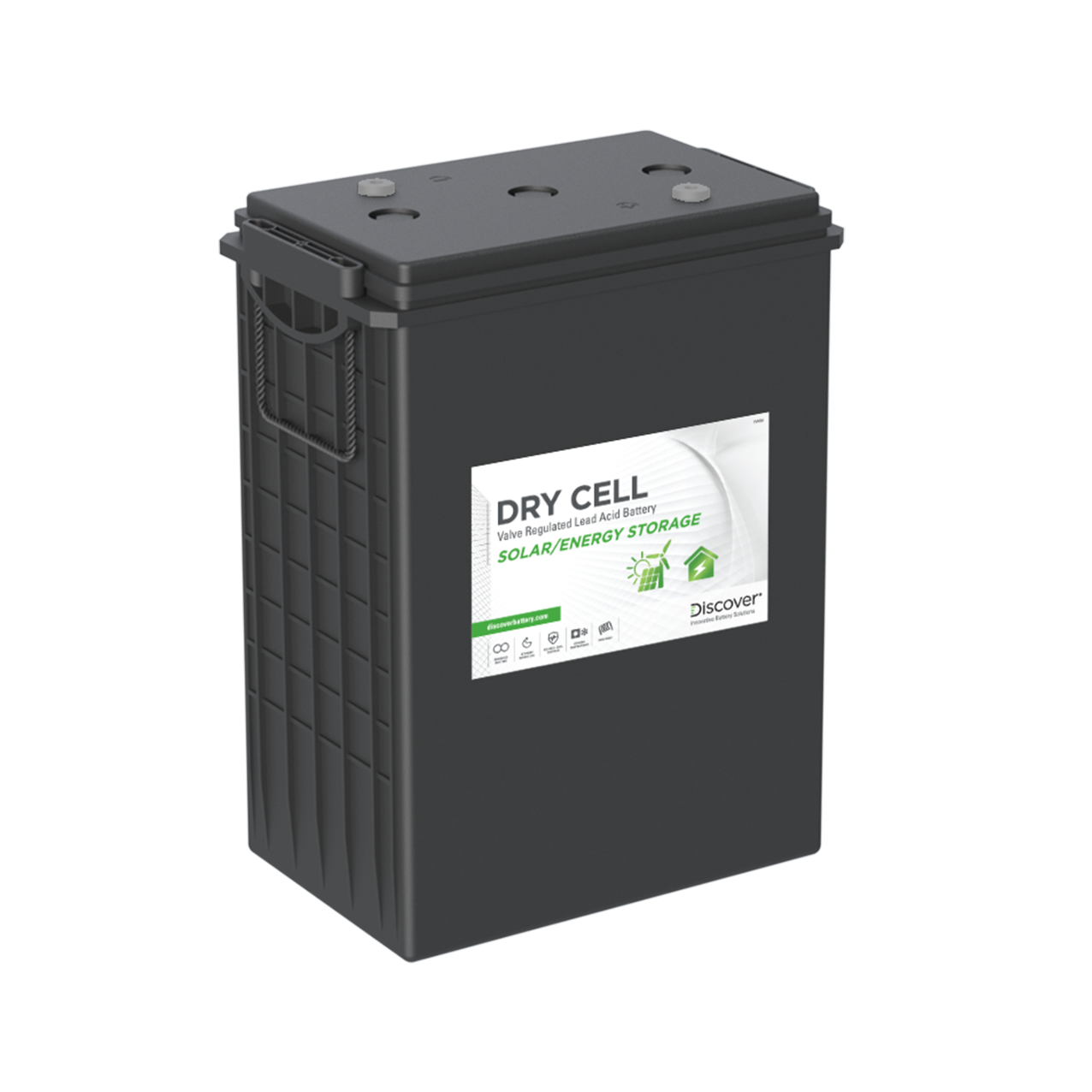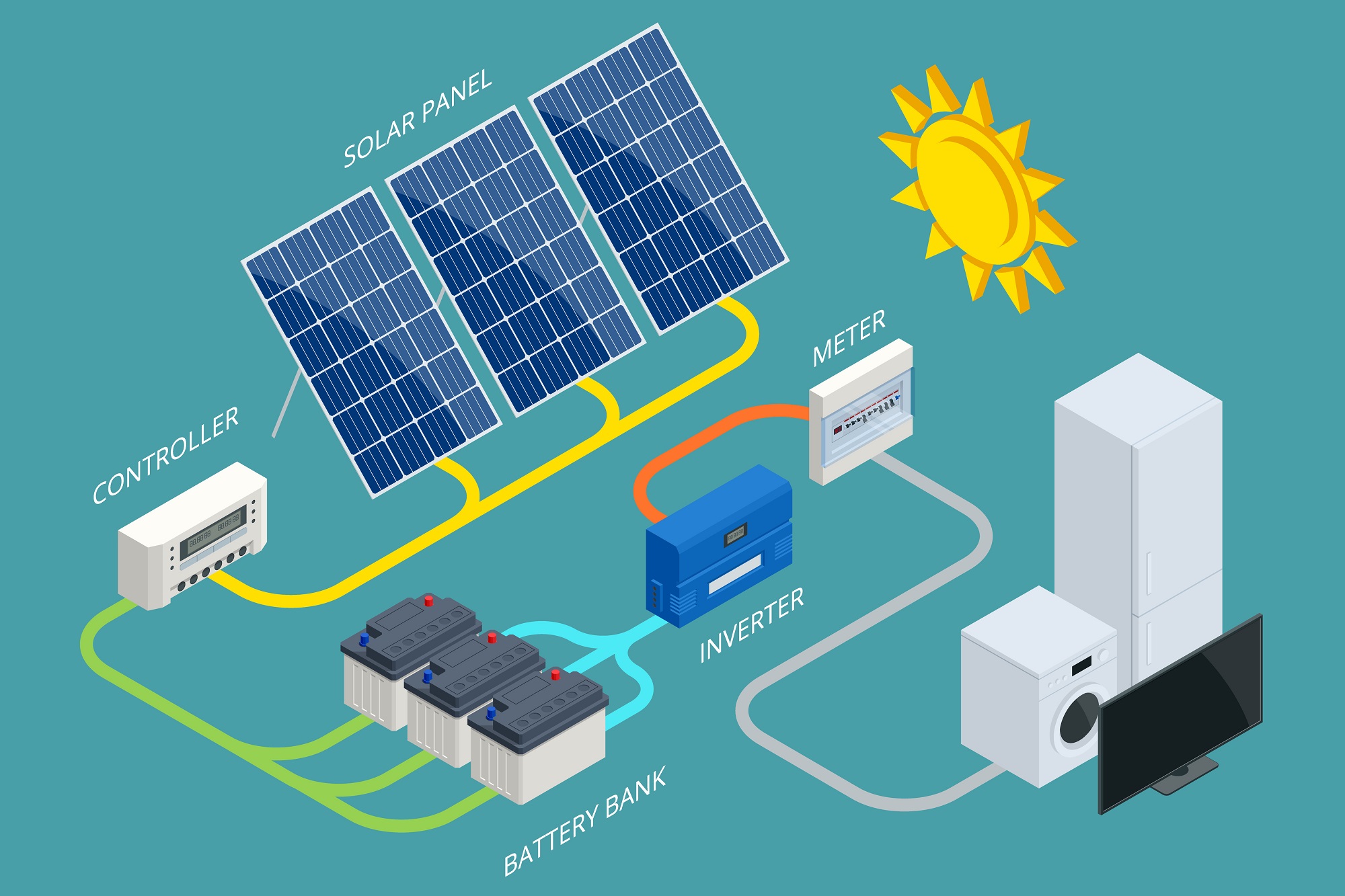Solar energy batteries store energy generated by solar panels for later use, providing off-grid power. These batteries are essential for solar energy systems and ensure electricity availability during cloudy days or nighttime.
With solar energy’s rising popularity, the demand for efficient and durable batteries is increasing. Homeowners, businesses, and even utility companies are investing in solar energy batteries to reduce reliance on the grid and lower electricity bills. As technology advances, these batteries are becoming more affordable and capable of storing more significant amounts of energy, making solar power a viable and sustainable option for many.
The Rise Of Solar Energy Batteries
Solar energy has gained traction in recent years as more people become aware of the benefits of renewable energy sources. One of the significant challenges of solar energy has been its intermittency—the sun is not always shining, and thus, the energy output of solar panels can fluctuate. However, the advent of solar energy batteries has changed the game, allowing for a more consistent and reliable energy source from the sun.
Growing Demand For Renewable Energy
Renewable energy is gaining popularity as more people become conscious of how fossil fuels affect the environment. Solar power, in particular, has seen a surge in demand in recent years due to its numerous advantages. Solar panels have become more affordable and efficient, making it easier for people to transition to solar power. This, in turn, has led to a growing demand for solar energy batteries, which can store excess energy generated by solar panels for use when the sun is not shining.
The Vital Role Of Storage
The importance of energy storage cannot be overstated, especially when it comes to solar energy. Solar energy batteries play a vital role in storing energy generated by solar panels during the day for use at night or during cloudy weather. Excess energy generated by solar panels would go to waste without energy storage. With the help of solar energy batteries, however, this energy can be stored and used when needed, making solar energy a more reliable and consistent power source.
The rise of solar energy batteries has revolutionized our thoughts about solar energy. With the help of energy storage, solar energy has become a more reliable and consistent power source, which is essential for homeowners and businesses. As the demand for renewable energy continues to grow, we will likely see even more advancements in solar energy batteries, making it easier for people to transition to clean, sustainable energy sources.

Credit: www.solarwa.org
Types Of Solar Energy Batteries
Solar energy batteries are an essential component of solar power systems. They allow the storage of excess energy generated during the day for use during periods of low or no sunlight. Various types of solar energy batteries are available in the market, each with unique features and benefits.
Lead-acid Versus Lithium-ion
Lead-acid batteries have been popular for solar energy storage due to their low cost and reliability. They are well-suited for off-grid solar systems and are available in sealed and flooded variants.
Lithium-ion batteries, on the other hand, are gaining popularity due to their higher energy density, longer lifespan, and faster charging capabilities. Although they are more expensive up front, their overall cost-efficiency and performance make them a compelling choice for grid-tied solar installations.
Emerging Technologies In Energy Storage
Vanadium redox flow batteries are emerging as a promising technology for solar energy storage. These batteries offer scalability, long cycle life, and high efficiency, making them suitable for residential and commercial solar applications.
Sodium-ion batteries are also being developed as a potential alternative to lithium-ion batteries. They offer similar performance characteristics while utilizing more abundant and sustainable materials.
Hydrogen-based energy storage is another emerging technology that holds promise for long-duration energy storage, especially for utility-scale solar power projects. This technology enables the conversion of excess solar energy into hydrogen, which can be stored and utilized as needed.
How Solar Batteries Work
Solar batteries play a crucial role in harnessing the sun’s power and making it available for use during periods of low solar intensity or at night. Understanding how solar batteries work is essential for anyone considering integrating them into their renewable energy system. Let’s dive into the science of storing sunlight and the seamless integration with solar panels.
The Science Of Storing Sunlight
Solar batteries store excess energy generated by solar panels during periods of high sunlight intensity. This stored energy can be used when sunlight is limited, ensuring a consistent power supply. The process involves converting solar energy into electrical energy and storing it in the battery for later use.
Integration With Solar Panels
Solar batteries seamlessly integrate with solar panels through a charge controller, which regulates the flow of electricity from the panels to the batteries. This integration ensures that the solar panels efficiently charge the batteries and that the stored energy is readily available whenever required.

Credit: www.energy.gov
Benefits Of Solar Energy Storage
Unlock the full potential of solar energy with solar energy batteries. Store excess energy during peak hours, reduce reliance on the grid, and enjoy an uninterrupted power supply. Embrace sustainability and lower your electricity bills with this eco-friendly solution.
Reducing Carbon Footprint
Solar energy batteries help reduce reliance on fossil fuels, thus lowering carbon emissions.
Energy Independence
Having solar energy storage provides independence from the grid during power outages.
Cost Savings Over Time
Investing in solar batteries leads to long-term cost savings on electricity bills.
Challenges In Solar Battery Adoption
Solar energy batteries play a crucial role in enabling sustainable energy solutions, but their adoption faces several challenges.
Initial Investment Costs
The upfront expense of solar batteries can be high, deterring some from investing in this technology.
Material Sustainability Issues
Sourcing and disposal of battery materials can raise environmental concerns, impacting long-term sustainability.
Technical Limitations
Solar batteries currently face limitations in storage capacity and efficiency, hindering widespread adoption.
Installation And Maintenance
Proper installation and maintenance are crucial for maximizing solar energy batteries’ efficiency and lifespan. Whether you opt for professional installation or decide to take the DIY route, ensuring the longevity of your solar energy batteries requires attention to maintenance tips and best practices.
Professional Installation Vs. Diy
Professional installation ensures that the solar energy batteries are integrated seamlessly into your existing energy system. DIY installation may be cost-effective for some, but it requires a good understanding of electrical systems and safety precautions.
Maintenance Tips For Longevity
Check the batteries regularly for indications of wear or damage. Clean the connections and terminals to stop corrosion. Monitor the charge levels and ensure the batteries are not overcharged or discharged excessively.
Future Innovations In Solar Battery Technology
The future of solar energy storage is undergoing exciting developments, with a strong focus on enhancing the efficiency and capabilities of solar batteries. Advancements in battery efficiency drive this progress, the integration of nanotechnology, and substantial investments from both government and industry. Let’s explore these future innovations in solar battery technology.
Advancements In Battery Efficiency
Solar battery technology is rapidly evolving to improve energy storage and utilization. Innovations in materials and design are leading to higher energy density, longer lifespan, and faster charging capabilities, making solar batteries more efficient and cost-effective for consumers.
The Role Of Nanotechnology
Nanotechnology is pivotal in shaping the future of solar battery technology. By leveraging the unique properties of nanomaterials, researchers can enhance the performance and stability of solar batteries, leading to greater energy storage capacity and improved overall efficiency.
Government And Industry Investments
Government initiatives and substantial investments from the industry are driving the development of next-generation solar batteries. These financial commitments fuel research and development efforts, leading to breakthrough technologies that will further advance the capabilities and accessibility of solar energy storage solutions.

Credit: discoverbattery.com
Impact Of Solar Batteries On The Grid
Solar batteries play a crucial role in reducing strain on the grid by storing excess solar energy for later use. By integrating solar batteries, grid reliability increases while minimizing dependency on non-renewable energy sources. This shift towards solar batteries fosters a more sustainable energy ecosystem.
Smoothing Out Energy Peaks And Valleys
Solar energy batteries have significantly impacted the grid by addressing the issue of energy peaks and valleys. Energy demand varies throughout the day, with peak demand occurring in the morning and evening. Solar energy production, on the other hand, peaks during the middle of the day when the sun is at its highest. Excess energy can be stored during peak production hours and discharged during high energy demand using solar batteries. This helps to smooth out the peaks and valleys of energy production, which reduces the need for traditional fossil fuel-based power plants to meet demand.
Solar Batteries In Off-grid Communities
Off-grid communities not connected to a traditional power grid can benefit significantly from solar batteries. Solar energy can power homes and businesses in remote areas, allowing people to live and work in previously inaccessible places. With the use of solar batteries, energy can be stored for use during times when the sun is not shining. This provides a reliable source of energy that is not dependent on traditional power plants, which can be expensive to build and maintain in remote areas.
Using solar batteries to power off-grid communities also has environmental benefits. Traditional power sources like diesel generators can be noisy, polluting, and expensive. Solar energy, on the other hand, is clean, silent, and renewable. By using solar batteries, off-grid communities can reduce their reliance on fossil fuels and contribute to a cleaner environment.
Solar energy batteries have made a significant impact on the grid and in off-grid communities. By smoothing out energy peaks and valleys, solar batteries reduce the need for traditional power plants and help address climate change. In off-grid communities, solar batteries provide a reliable clean, silent, and renewable energy source. As the demand for renewable energy grows, solar batteries will continue to play an essential role in powering homes and businesses worldwide.
Choosing The Right Solar Battery For Your Needs
Selecting the correct solar battery is crucial for harnessing solar energy. Key factors to consider are assessing energy requirements, comparing market options, and understanding warranty and lifespan.
Assessing Energy Requirements
- Determine your daily energy consumption needs.
- Consider peak usage hours for efficient storage.
- Calculate the storage capacity required for uninterrupted power.
Comparing Market Options
Comparing different solar battery technologies can help you make an informed decision:
| Battery Type | Pros | Cons |
|---|---|---|
| Lithium-ion | High energy density | Higher initial cost |
| Lead Acid | Lower initial cost | Shorter lifespan |
Understanding Warranty And Lifespan
- Check warranty coverage for defects or performance issues.
- Consider battery lifespan to ensure long-term reliability.
- Review the manufacturer’s reputation for quality assurance.
Policy And Incentives For Solar Battery Users
Solar energy batteries are becoming increasingly popular for homeowners and businesses to store the excess energy generated by their solar panels. In addition to providing backup power during outages, these batteries can help reduce electricity bills and reduce reliance on the grid. Policy and incentives are crucial in making solar energy batteries more accessible and affordable for consumers.
Federal And State Tax Credits
Federal and state governments offer tax credits to incentivize the adoption of solar energy systems, including batteries. The Federal Investment Tax Credit (ITC) allows homeowners and businesses to claim a percentage of the cost of their solar battery installation as a credit against their federal tax liability. Similarly, many states offer tax credits or rebates for solar battery installations, making it more cost-effective for consumers to invest in this technology.
Utility Company Rebates And Programs
Utility companies often provide rebates and incentive programs to encourage customers to install solar energy batteries. These programs can offset some upfront costs of purchasing and installing a battery system. Additionally, some utilities offer time-of-use rates or net metering programs that allow battery owners to maximize their savings by storing excess energy during off-peak hours and selling it back to the grid during times of high demand.

Frequently Asked Questions
Which Battery Is Ideal For Solar Power?
The best battery for solar power is a deep-cycle battery, such as lead-acid or lithium-ion. These batteries are designed for regular deep discharges and recharges, making them ideal for storing solar energy. When choosing the right battery for your solar power system, consider factors like cost, lifespan, and maintenance.
How many solar batteries are required to power a house?
Typically, a house requires 10-20 solar batteries for power, depending on energy needs and usage patterns.
What Are The 4 Types Of Solar Batteries?
The four types of solar batteries are lead-acid, lithium-ion, flow, and saltwater. Lead-acid batteries are the most common and least expensive, while lithium-ion batteries are more expensive but have a longer lifespan. Flow batteries are ideal for large-scale storage, and saltwater batteries are eco-friendly and low-maintenance.
Which Three Disadvantages Come With Using Batteries to Store Solar Energy?
Three drawbacks to storing solar energy in batteries are limited storage capacity, high initial costs, and environmental impact.
Conclusion
Solar energy batteries offer a sustainable and cost-effective solution for storing solar power. They are a crucial component of a greener future with the potential to reduce reliance on non-renewable energy sources. By harnessing the sun’s power, these batteries pave the way for a cleaner and more efficient energy landscape.

I am a battery specialist writer and blogger based in the USA & UK . I have been working with battery power energy for 3 long years and I give trips on low battery power problem and solutions . I have a lot of experience with battery power and I share them here.

